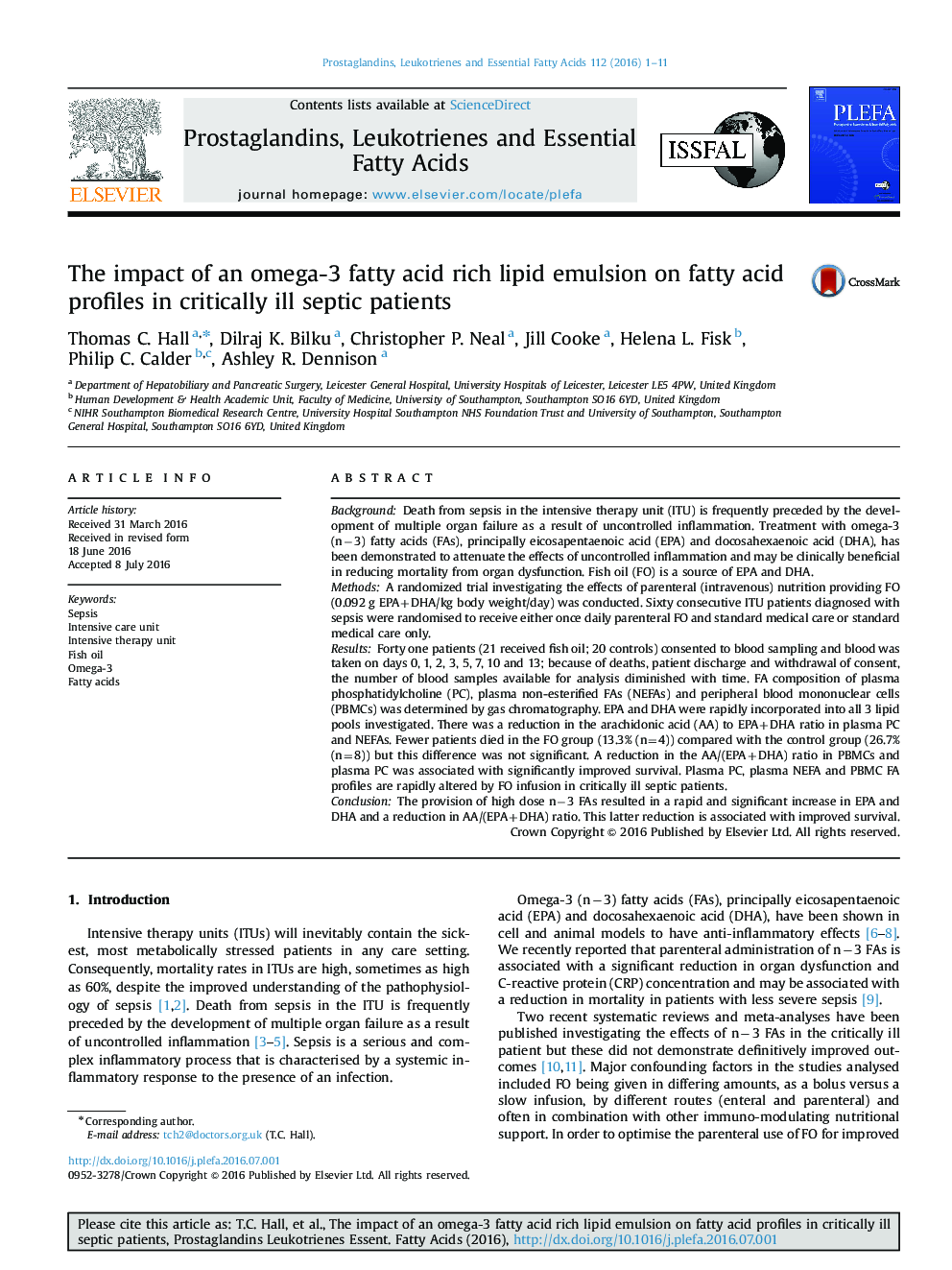| کد مقاله | کد نشریه | سال انتشار | مقاله انگلیسی | نسخه تمام متن |
|---|---|---|---|---|
| 2777433 | 1568007 | 2016 | 11 صفحه PDF | دانلود رایگان |
BackgroundDeath from sepsis in the intensive therapy unit (ITU) is frequently preceded by the development of multiple organ failure as a result of uncontrolled inflammation. Treatment with omega-3 (n−3) fatty acids (FAs), principally eicosapentaenoic acid (EPA) and docosahexaenoic acid (DHA), has been demonstrated to attenuate the effects of uncontrolled inflammation and may be clinically beneficial in reducing mortality from organ dysfunction. Fish oil (FO) is a source of EPA and DHA.MethodsA randomized trial investigating the effects of parenteral (intravenous) nutrition providing FO (0.092 g EPA+DHA/kg body weight/day) was conducted. Sixty consecutive ITU patients diagnosed with sepsis were randomised to receive either once daily parenteral FO and standard medical care or standard medical care only.ResultsForty one patients (21 received fish oil; 20 controls) consented to blood sampling and blood was taken on days 0, 1, 2, 3, 5, 7, 10 and 13; because of deaths, patient discharge and withdrawal of consent, the number of blood samples available for analysis diminished with time. FA composition of plasma phosphatidylcholine (PC), plasma non-esterified FAs (NEFAs) and peripheral blood mononuclear cells (PBMCs) was determined by gas chromatography. EPA and DHA were rapidly incorporated into all 3 lipid pools investigated. There was a reduction in the arachidonic acid (AA) to EPA+DHA ratio in plasma PC and NEFAs. Fewer patients died in the FO group (13.3% (n=4)) compared with the control group (26.7% (n=8)) but this difference was not significant. A reduction in the AA/(EPA+DHA) ratio in PBMCs and plasma PC was associated with significantly improved survival. Plasma PC, plasma NEFA and PBMC FA profiles are rapidly altered by FO infusion in critically ill septic patients.ConclusionThe provision of high dose n−3 FAs resulted in a rapid and significant increase in EPA and DHA and a reduction in AA/(EPA+DHA) ratio. This latter reduction is associated with improved survival.
Journal: Prostaglandins, Leukotrienes and Essential Fatty Acids (PLEFA) - Volume 112, September 2016, Pages 1–11
